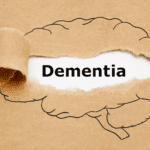When it comes to hiring a caregiver for a loved one, safety and security should be of the utmost importance. One way to ensure the safety of your loved one is to conduct a background check on any potential caregivers. But the question remains, does your caregiver need a background check? The answer is a resounding yes.
Prioritising Safety in Caregiving
At Complete Homecare 24, ensuring the safety and trustworthiness of caregivers is our top priority.
Understanding the Need for Background Checks
The decision to bring a caregiver into your home is significant. It’s not just about their skills but also about the trust and safety they bring into your loved one’s life. This is why we place immense importance on the question, “Does My Caregiver Need a Background Check?” This isn’t just a procedural step; it’s a crucial part of ensuring your loved one’s safety.
The Role of Background Checks
In home care, where caregivers are in close, personal environments, knowing who you’re entrusting your loved one’s care to is paramount. Background checks are essential in revealing the history, qualifications, and suitability of a caregiver.
Complete Homecare 24’s Commitment
At Complete Homecare 24, our approach goes beyond just fulfilling basic requirements. We aim to understand the full spectrum of a caregiver’s background, aligning with our high standards of care. Our focus isn’t only on legal compliance but also on moral and professional integrity.
Legal Requirements and State-Specific Laws for Caregiver Background Checks in the UK
In the UK, background checks for caregivers, especially those working with vulnerable groups such as the elderly, are governed by specific legal requirements to ensure safety and suitability. The primary tool for this is the Disclosure and Barring Service (DBS) checks. There are different levels of DBS checks: Basic, Standard, Enhanced, and Enhanced with list checks. The level required depends on the nature of the caregiver’s role.
- Enhanced DBS Checks: These are the most comprehensive checks, often required for roles involving direct work with vulnerable groups, including the elderly. They include spent and unspent convictions, cautions, warnings, and reprimands, as well as any additional information held by the police that might be relevant to the role. For caregivers, an Enhanced DBS check is generally necessary.
- Right to Work Checks: It’s a legal requirement to ensure that all employees have the right to work in the UK. This involves verifying the individual’s work status through documents like passports or relevant visas.
- Adverse Credit Checks: While not always mandatory, these checks can be relevant, especially for roles where financial transactions might occur. They help assess if there’s any financial risk associated with the caregiver.
- Identity and Employment Reference Checks: These checks confirm the caregiver’s identity and verify their employment history. References from previous employers are also sought to validate their experience and suitability.
- Additional Considerations for Scotland: In Scotland, the Protecting Vulnerable Groups (PVG) scheme managed by Disclosure Scotland is used instead of DBS checks. It also focuses on vetting individuals working with vulnerable groups.
Caregivers’ roles often grant them access to sensitive information and personal environments, making these checks crucial for ensuring trust and safety. The cost of Enhanced DBS checks, which is around £44, is usually covered by the employer, but there’s no legal stipulation requiring this.
Employers and individuals hiring caregivers should be aware of these requirements to ensure compliance with UK laws and safeguard the well-being of those under care.
Sources: Complygate, Checkr Help Center, and Elder.
What Information is Revealed in Background Checks for Caregivers?
When conducting background checks for caregivers, particularly in the UK, various types of information are revealed to ensure the safety and suitability of the individual for their caregiving role. These checks are comprehensive and cover several aspects:
- Criminal History: This is a critical part of the background check, especially for caregivers who work with vulnerable individuals. Enhanced DBS checks (in England and Wales) or PVG checks (in Scotland) provide details of both spent and unspent convictions, cautions, warnings, reprimands, and additional police information. This helps to assess if the candidate has a history of criminal behaviour that could be a concern in a caregiving role.
- Right to Work Verification: These checks confirm the individual’s legal right to work in the UK. They typically require reviewing official documents like passports or visas. This step is essential to comply with UK employment laws and avoid penalties for employing unauthorised individuals.
- Adverse Financial History: While not always a standard requirement, these checks can be particularly relevant for roles involving financial transactions. They help to identify any financial risks associated with the caregiver, such as a history of missed payments or other financial issues.
- Identity Verification: This fundamental check ensures that the person being employed is indeed who they claim to be. It involves verifying personal details against official documents.
- Employment History and References: Verifying past employment helps to establish the caregiver’s work experience and performance in previous roles. References from former employers provide insights into their reliability, skills, and behaviour in a work setting.
- Educational and Professional Qualifications: If relevant to the caregiving role, these checks verify the caregiver’s educational background and any specific professional qualifications or certifications they may have obtained.
- Special Considerations for Specific Roles: Certain roles, such as those involving work with children or vulnerable adults, might require additional checks, such as an Enhanced DBS check with barred list information.
These checks collectively contribute to a comprehensive understanding of the candidate’s background, helping employers or families to make informed decisions about their suitability for caregiving roles. They address various aspects, from legal compliance and identity verification to assessing risks related to criminal history and financial stability.
Potential Disqualifying Factors in Caregiver Background Checks
When conducting background checks for caregivers in the UK, certain findings can act as disqualifying factors. These elements are crucial in determining whether a candidate is suitable for a role that involves working closely with vulnerable individuals. The primary disqualifying factors include:
- Criminal Record: A history of certain types of criminal offences, especially those involving violence, abuse, theft, or fraud, can be a major disqualifying factor. Enhanced DBS checks reveal both spent and unspent convictions, and certain convictions, particularly those involving harm to vulnerable individuals, may deem a candidate unsuitable for a caregiving role.
- Inclusion in Barred Lists: If a candidate is listed in the DBS Children and Adults’ barred lists, they are legally restricted from working with these groups. This would automatically disqualify them from roles involving care for vulnerable adults or children.
- False or Misleading Information: Providing false information about identity, qualifications, or employment history can also be a disqualifying factor. This includes discrepancies found during identity, employment reference, and qualification verification checks.
- Right to Work Issues: If an individual does not have the legal right to work in the UK, this is a disqualifying factor. Employing someone without the right to work can lead to legal consequences for employers.
- Adverse Financial History: While not always a direct disqualifying factor, a concerning financial history may be considered, especially for roles that involve managing finances or valuables.
- Poor Employment References: Negative feedback from previous employers, particularly around issues of trust, reliability, or professional conduct, can raise concerns about a candidate’s suitability.
- Health and Safety Concerns: In some cases, health-related issues, if they potentially compromise the safety and well-being of the person being cared for, might be considered, especially if the role requires physical tasks.
Each of these factors is considered within the context of the specific role and its requirements. It’s important to note that not all criminal records or adverse findings automatically disqualify a candidate; the nature, recency, and relevance of any adverse findings are carefully weighed. The aim is to ensure that caregivers are not only professionally competent but also trustworthy and safe to work with vulnerable groups.
The disqualification criteria are in place to protect the safety and well-being of those receiving care, ensuring that only the most suitable individuals are employed in these sensitive and important roles.
Best Practices and Continual Monitoring in Caregiver Background Checks
To ensure the highest standards of care and safety, it is essential to follow best practices in conducting background checks and to engage in continual monitoring of caregivers. These practices help maintain a safe and trustworthy environment for those receiving care.
- Comprehensive Screening: Initially, conduct thorough background checks that include all relevant components: criminal history, right to work, financial history, identity verification, employment history, and any specific qualifications required for the role.
- Adhering to Legal Standards: Ensure compliance with all legal requirements for background checks in the UK, including DBS checks, PVG schemes in Scotland, and Right to Work verifications.
- Regular Updates: Periodically update background checks, particularly criminal record checks, to account for any new information or changes in the caregiver’s status.
- Ongoing Monitoring: Implement an ongoing monitoring system to promptly identify any issues or concerns that arise during the caregiver’s employment. This can include regular performance reviews, feedback from those receiving care, and updated background checks.
- Training and Development: Provide continuous training and professional development opportunities to caregivers to enhance their skills and knowledge in providing care.
- Open Communication: Maintain open lines of communication with caregivers and those receiving care, encouraging feedback and addressing concerns promptly.
- Data Protection and Privacy: Ensure all personal information obtained during background checks is handled in accordance with data protection laws, respecting the privacy and confidentiality of the caregiver.
By following these best practices and continually monitoring caregivers, employers and families can ensure a high level of care and safety for vulnerable individuals.
Conclusion: Ensuring Safety and Trust in Caregiving through Diligent Background Checks
In conclusion, conducting meticulous background checks is crucial in the caregiving sector. The process not only ensures legal compliance but also safeguards the welfare of the most vulnerable in society. By understanding the legal requirements, the information revealed in these checks, potential disqualifying factors, and adhering to best practices, we can create a safe and trusting environment for both caregivers and those they care for.
As we navigate the complexities of caregiving, it becomes evident that a proactive and thorough approach to background checks is indispensable. Continual monitoring and ongoing support for caregivers further enhance this safe framework. At Complete Homecare 24, our commitment to these principles is unwavering, underlining our dedication to providing exceptional care with the utmost integrity and reliability.
The well-being of our clients remains our highest priority, and through diligent background checks and continuous oversight, we strive to uphold the highest standards of care and safety in the industry.
As you navigate the journey of finding the perfect caregiver, remember that safety, trust, and professionalism are paramount. At Complete Homecare 24, we are dedicated to ensuring these values are at the forefront of our services. Our thorough background checks and continual monitoring practices are designed to provide you with peace of mind, knowing your loved ones are in safe hands.
If you are seeking high-quality, reliable care for yourself or your loved ones, or if you have any questions about our caregiver vetting process, we invite you to reach out to us. Our team at Complete Homecare 24 is committed to providing personalised care solutions tailored to meet your unique needs.
Contact us today to learn more about our services, discuss your specific requirements, or simply to gain more insights into how we can assist you. Let us help you ensure that your caregiving needs are met with the utmost care and professionalism.
Complete Homecare 24
We offer a range of services at Complete Homecare 24. Through our high-quality home care, we hope to make sure that our patients feel seen and, more importantly, heard. Every client has a care plan that is uniquely designed for them so the live-in carer or caregiver can comprehend their unique needs and expectations. To keep up to date, check out our Facebook and Instagram. Alternatively, check out our blog for more information.






1 Comment
Individuals You Wouldn’t Expect To Need Home-care
8 February 2023[…] Home-care is a type of health care service that provides medical and non-medical assistance to individuals in the comfort of their own homes. It is typically used by seniors and people with disabilities, but there are many other individuals who can also benefit from these services. In this article, we will explore the individuals you wouldn’t expect to need home-care and why it is important for them to consider this option. […]